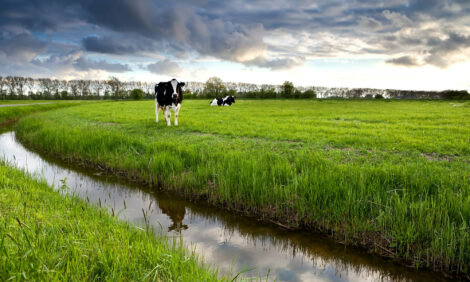



Checking for Radioactive Contamination in Grass
JAPAN - The government plans to check for radioactive contamination in grass for livestock in the eastern half of Japan to prevent contaminated beef or milk from entering the market amid the continuing crisis at the Fukushima Daiichi nuclear plant, government officials said Tuesday.The Agriculture, Forestry and Fisheries Ministry has set allowable radioactive contamination levels for grass and asked 16 prefectures to check grass in areas where higher-than-normal levels of atmospheric radiation have been detected, they said.
According to JapanToday, the 16 prefectures include Fukushima, where radioactive substances have leaked from the Tokyo Electric Power Co plant crippled by the March 11 earthquake and tsunami. The others are Aomori, Iwate, Miyagi, Akita, Yamagata, Ibaraki, Tochigi, Gunma, Saitama, Chiba, Tokyo, Kanagawa, Yamanashi, Nagano and Shizuoka.
After screening the results of the checks that will become available within May, the ministry will ban the use of grass found contaminated beyond the allowable levels, they said.
Farmers subject to the ban will be given compensation based on coordination between the government and TEPCO.
The checks for radioactive contamination will take place every two weeks. The ban will be lifted on grass cleared in three consecutive checks.
The allowable levels of radioactive substances in grass are 300 becquerels of radioactive cesium per kilogram of grass for cows and beef cattle, and 70 becquerels of radioactive iodine in grass only for cows.
TheCattleSite News Desk


